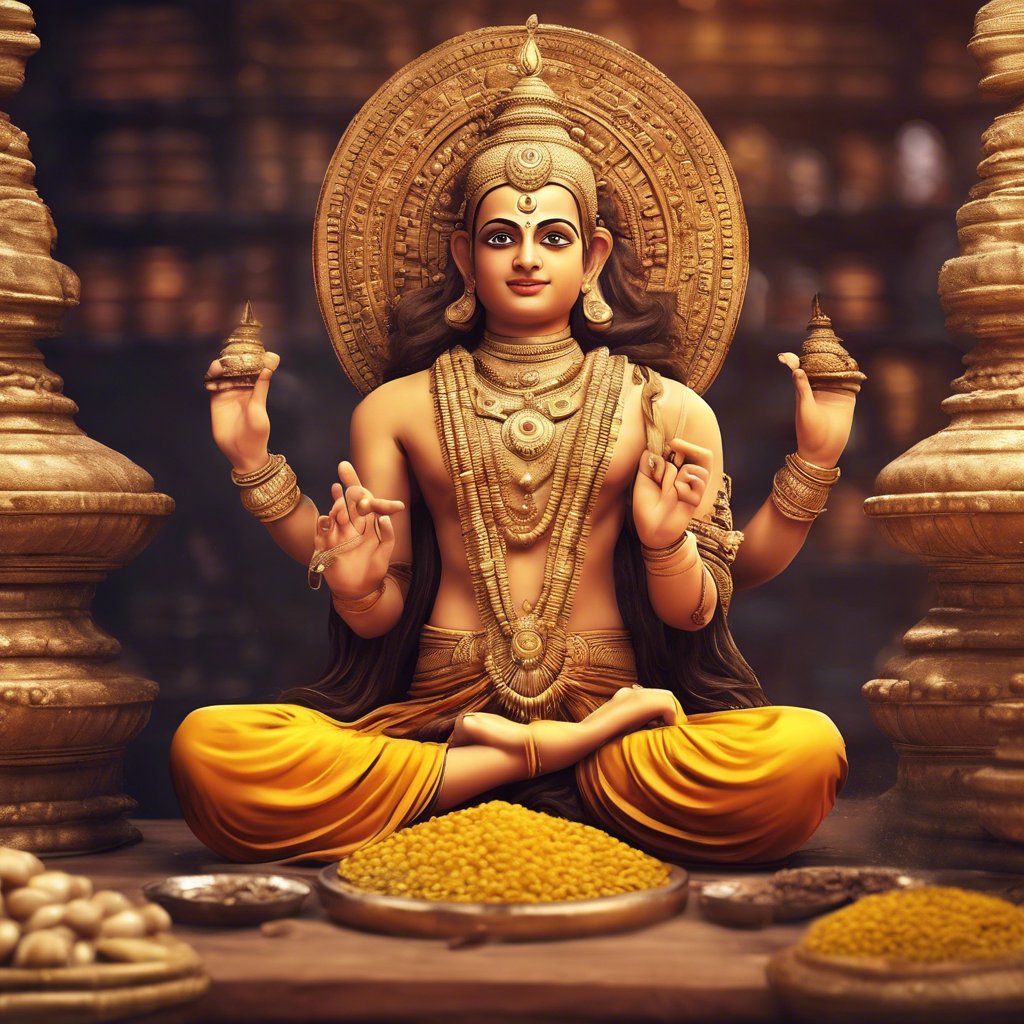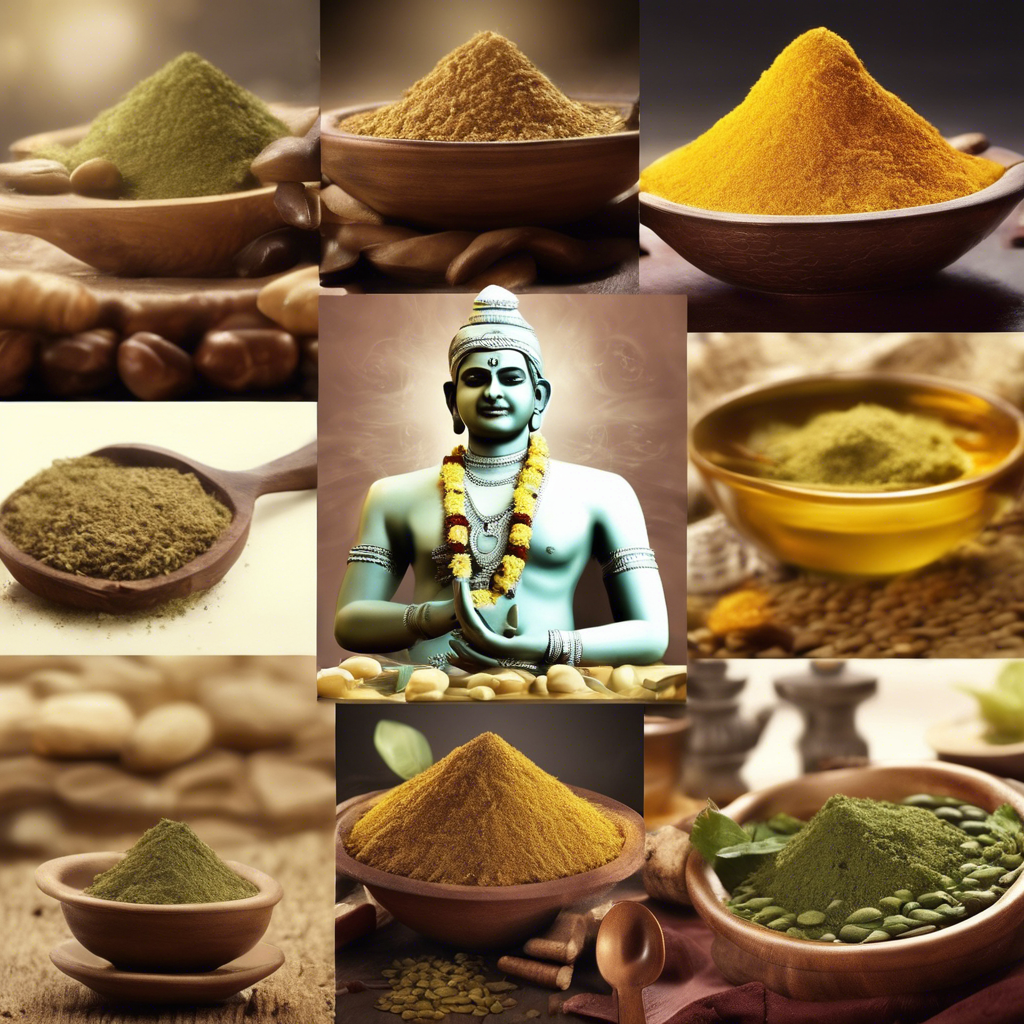
The Divine Healer: Lord Dhanvantari

Shloka No. 1:
धनुः शल्यशास्त्रं, तस्य अन्तं पारम् इयर्ति गच्छतीति धन्वन्तरिः ||
Dalhana Commentary on Su. Su. 1/3
Word Meaning:
धनुः = bow/ Surgery
शल्यशास्त्रं = Surgical branch
तस्य = Its
अन्तं = end/ inside
पारम् = another end
इयर्ति = excite/ raise
गच्छतीति = goes
धन्वन्तरिः= Dhanvantari
Shloka Meaning:
Dhanu means surgery; the one who moves, excites, or raises from one end to another end is called Dhanvantari.
Shloka Understanding:
The name "Dhanvantari" is derived from the root words "dhanu," Dhanva+ Antati= Shalya or Bow, and Antari means which Pass through. "Dhanvantari" also refers to the deity or divine archetype associated with medicine and healing.
The one who moves, excites, or rises from one end to another end of surgery means he knows every minute aspect of surgery or he is the expert in surgery and hence called Dhanvantari.
Dhanu, a term encompassing both surgery and archery, holds deep significance in ancient traditions. The connection between these seemingly disparate fields is intriguing, hinting at a profound understanding of precision, focus, and skill.
Delving deeper into the symbolism, Dhanvantari emerges as a figure embodying mastery and agility in the realm of surgery. The imagery of movement from one end to another mirrors the intricate maneuvers and precise actions required in surgical procedures.
The one who moves, excites, or rises from one end to another end of surgery means he knows every minute aspect of surgery or he is the expert in surgery and hence called Dhanvantari.
Shloka no. 2:
अहं हि धन्वन्तरिरादिदेवो जरारुजामृत्युहरोऽमराणाम् |
शल्याङ्गमङ्गैरपरैरुपेतं प्राप्तोऽस्मि गां भूय इहोपदेष्टुम् ||२१|| Su. Su. 1.
Word Meaning:
अहं = I
हि = surely/ only
धन्वन्तरिरादिदेवो = धन्वन्तरिः- Dhanvantari, आदिदेवो= first God
जरारुजामृत्युहरोऽमराणाम्= जरा- old age, रुजा- pain, मृत्यु- death, हरो- destroy, अमराणाम्- in heaven/ immortality
शल्याङ्गमङ्गैरपरैरुपेतं = शल्य- surgery, अङ्गं- branch, अङ्गैः- branches, अपरैः= others, उपेतं- along with
प्राप्तोऽस्मि = प्राप्तो- got, अस्मि= used in the sense I
गां = earth
भूय = being
इहोपदेष्टुम्= इह- this, उपदेष्टुम्- to teach
Shloka Meaning:
I’m the Lord Dhanvantari came on this earth to destroy the old age, pain, death, and give the immortality with the teachings of Surgery and other branches as in the heaven.
Conclusion
The word Dhanvantari is used in Ayurveda to address 4 different personalities.
Lord Dhanvantari - The God of Medicine, appeared during the Samudra Manthana by gods and demons.
Dhanvantari - as the author of books like Chikitsa Darshana, Chikitsa Koumudi, etc.
Kashiraja Divodasa Dhanvantari - a. Hari Vishnu Purana mentions Dhanvantari as the son of Kashiraja who learned Ayurveda from Bharadhwaja. b. Kashiraja Divodasa Dhanvantari - the founder of the Shalya branch and has disciples such as Sushruta, Aupadhenava, Aourabhra, Poushkalavata, Gopurarakshita, Vaitarana, and Karavirya learnt ayurveda directly from the Indra.
Sushrura Sutrasthana 1st adhyaya clesrly mentions that the Lord Dhanvantari incarnation as the Kashiraja Divodasa Dhanvantri.

Comments